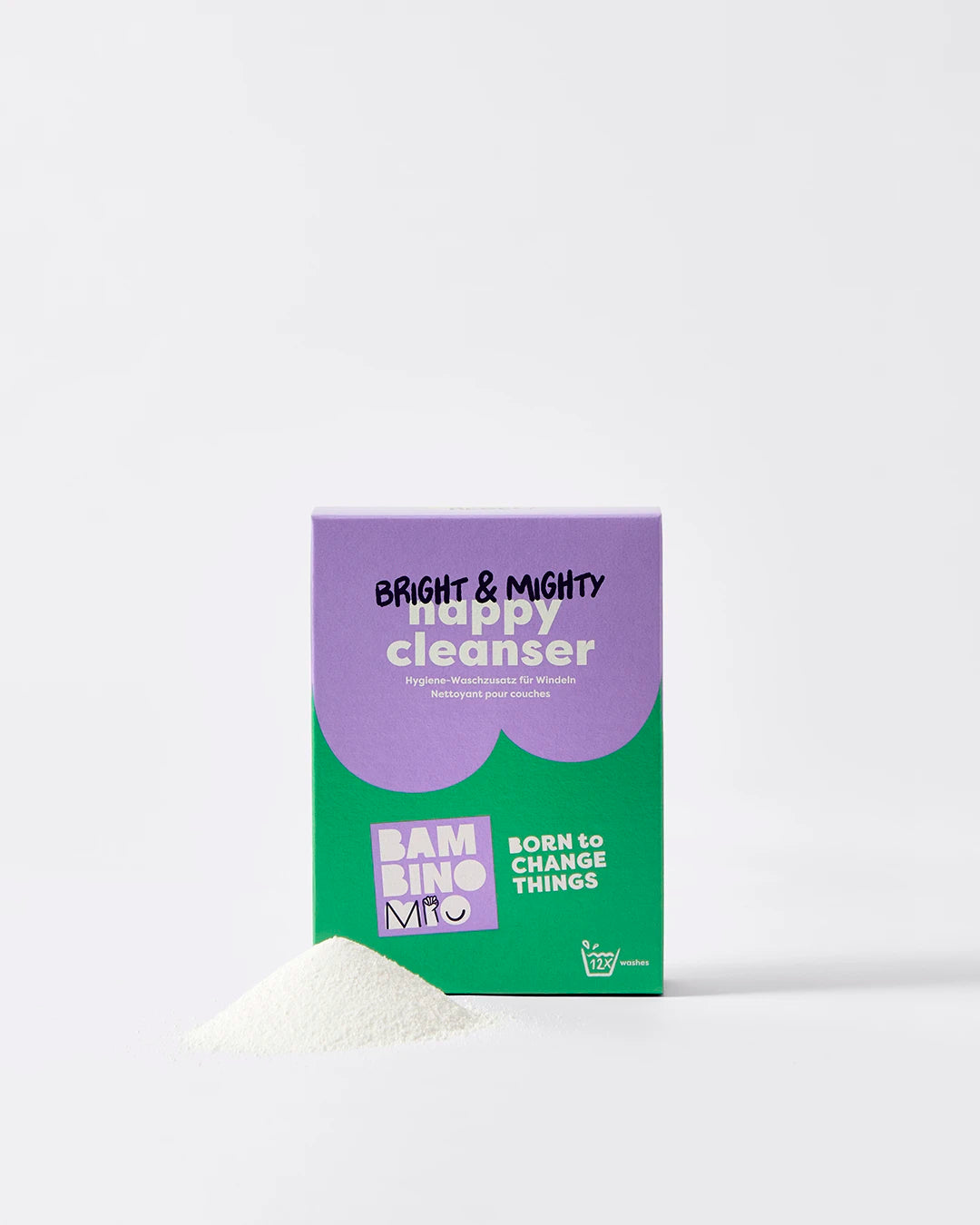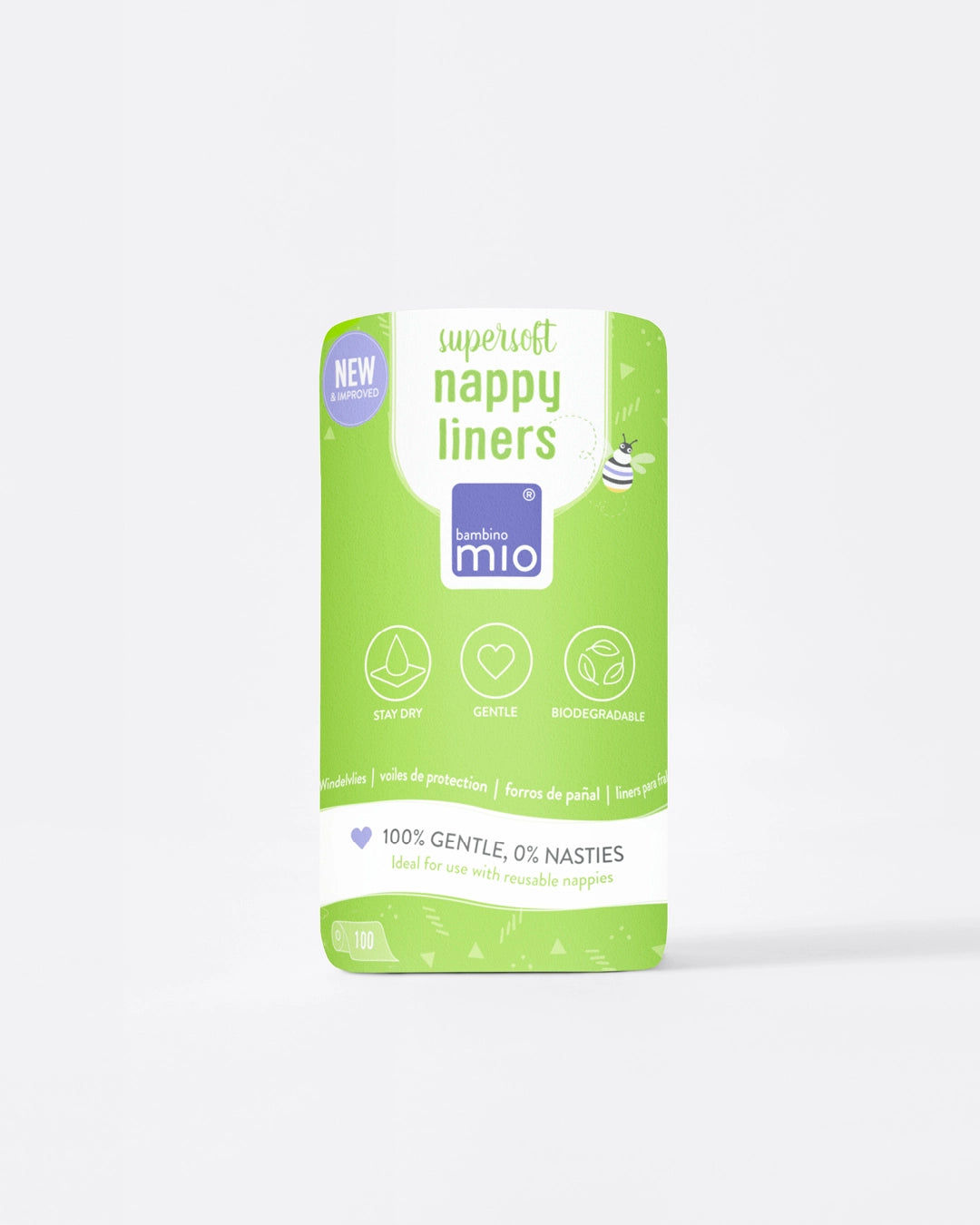What is Colic?
Share Options
- Bambino Mio
- 19 / 07 / 2023

Inside this Article:
Colic is the name for unexplained and prolonged crying or distress in a newborn baby (1). The crying has no obvious cause and the baby is otherwise healthy and thriving.
Colic usually improves by the time the baby is three or four months old, but if you’re worried you can always call your GP or health visitor.
Does my baby have colic?
All babies cry, but your baby might have colic if they’re crying for more than three hours a day, three or more days a week for at least one week, but are healthy aside from this.
You might notice that they cry more in the late afternoon and evening and colic can start up to a few weeks after birth.
Your baby might have colic if:
- It’s hard to settle or soothe them
- They go red in the face
- They clench their fists
- They seem to have a lot of wind
- They arch their back
- They bring their knees up to their stomach
Does your baby definitely have colic?
Your baby might be crying for reasons other than colic, such as:
- They’re hungry
- They have a dirty or wet nappy
- They have painful trapped wind
- They have reflux (2)
- They have constipation (3)
If you’ve eliminated or dealt with any of these possible causes and your baby is still distressed, you should call your health visitor, GP or NHS 111 for advice.
What can I do to soothe my colicky baby?
Colic does fade away after the first three or four months and while it can be a tough time for everyone, your baby probably won’t need to see a doctor because of it.
Your health visitor, if you ask for help, will probably advise you to:
- Cuddle your baby while they’re crying
- Hold your baby upright during and after feeds so they burp up any air they might swallow
- Take time to carefully wind your baby after feeds (4)
- Hold your baby over your shoulder and rock them gently
- Gently rock your baby in their crib, basket or pram
- Play some soothing music or white noise as sometimes babies simply get overstimulated; some parents find that their baby likes the sound of the washing machine or the vacuum cleaner
- Give your baby a warm bath - some parents find their baby is soothed by running a warm shower over their back or stomach
If you’re breastfeeding, you might notice a correlation between certain foods you eat and distress in your baby (5) a few hours later. Try to spot patterns and avoid those foods for at least a few weeks to see if some compounds or flavours were making their way into your breast milk.
When should I call NHS 111 or my GP?
You should call NHS 111, your GP or your health visitor if:
- You’re finding it hard to cope with your baby’s crying
- Your baby isn’t gaining weight like they should be
- Nothing you do seems to soothe your baby
- Your baby still shows colic symptoms after four months of age
- You’re worried about your baby and the amount of time they spend distressed
Your GP will check your baby over for any other possible causes for their crying.
I’m worried there’s something seriously wrong with my baby
You need to go to A&E or call 999 if:
- Your baby’s cry suddenly becomes weak or high pitched
- Their cry doesn’t sound like their normal crying in any way
You know your baby best and you can tell if something is amiss or very different to your baby’s “normal”. Trust your instincts and if you think or feel something’s wrong, ask for help, especially if there are any other symptoms present.
How to cope if your baby has colic
Colic does pass with time, but it is a very tiring and trying period, so do ask for help and support.
Approach friends and family to ask if they can take your baby out for a walk in their pram for an hour to give you a break.
If your baby has bouts of inconsolable crying, you can also call the Cry-sis helpline on 0800 4480 737; it’s open seven days a week from 9.00am to 10.00pm and helps parents to deal with their baby's excessive crying.
Your health visitor can also offer help and advice, so call them or drop into your local children’s centre.
What causes colic?
We don’t know what causes colic and we don’t know why some babies get it and others don’t. One theory is that human babies are born three or so months too early so that their heads don’t get too big to fit through their mum’s pelvis.
This fourth trimester theory says that during the first three months of a baby’s life their environment should be as calm and settled as possible so they can adjust to the outside world properly. Colic may be a symptom of your baby finding the adjustment difficult.
Other theories say that babies with colic have food allergies, such as cow’s milk allergy (6), which cause digestive discomfort.
What we do know is that colic passes, so hang on in there and ask for any help you might need.
Citations and References
(1) National Health Service (NHS). ‘Health A to Z. Colic.’ 2022. Web. www.nhs.uk/conditions/colic
(2) National Health Service (NHS). ‘Health A to Z. Reflux to Babies.’ 2021. Web. www.nhs.uk/conditions/reflux-in-babies
(3) National Health Service (NHS). ‘Health. Constipation in Children.’ 2020. Web. www.nhs.uk/conditions/baby/health/constipation-in-children
(4) National Health Service (NHS). ‘Better Health. Start for Life. Burping Your Baby.’ Web. www.nhs.uk/start-for-life/baby/feeding-your-baby/breastfeeding/how-to-breastfeed/burping-your-baby
(5) National Health Service (NHS). ‘Breastfeeding and Diet.’ 2022. Web. https://www.nhs.uk/conditions/baby/breastfeeding-and-bottle-feeding/breastfeeding-and-lifestyle/diet
(6) National Health Service (NHS). ‘Children’s Health. What should I do if I think my baby is allergic or intolerant to cows' milk?’ 2022. Web. www.nhs.uk/common-health-questions/childrens-health/what-should-i-do-if-i-think-my-baby-is-allergic-or-intolerant-to-cows-milk































